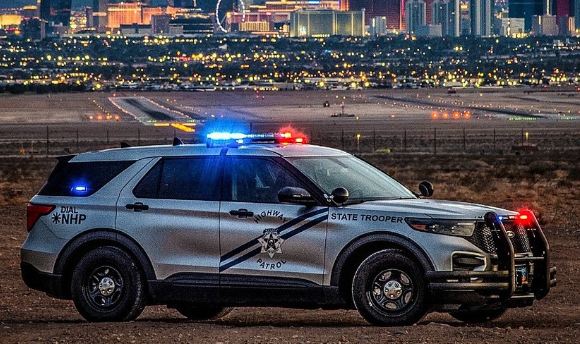With the new year comes new state laws, including a 2023 law that changes the standards for becoming a California police officer.
Anyone who can legally work in the state under federal law, regardless of citizenship, can now be a police officer.
“The San Diego Police Department has lost over 500 officers since July of 2020. That’s drastic. We need everyone we can to be able to be a police officer. However, we are not in favor of reducing the requirements and lowering the standards,” said Sgt. Jared Wilson, speaking as President and on behalf of the San Diego Police Officer’s Association.
Wilson expressed concern about a new California law that altered the requirements for becoming a police officer in the state.
Prior to January 1, 2023, you had to be a US citizen or permanent resident to be considered for the position.
That is no longer the case. Anyone with the correct green card or visa who is lawfully entitled to work in the state of California under federal law is qualified to become a police officer.
Senate Bill 960, introduced by state Senator Nancy Skinner, changed the requirement.
“When you look at California’s rules, almost every other profession, lawyers, doctors… even firefighters… are able to be part of that profession as long as they have full legal authorization, full federal legal work authorization. It was only our sworn officers we restricted that way,” said Skinner. She added, “Ironically in the military, you could be an officer in the military, and you could not be a peace officer in California. So that’s why we felt it was totally right to fix the rule.”
To be clear, Skinner stated that this does not apply to unauthorized labor. She stated that under federal law, a person must have full legal work permission; persons who pay taxes and have every opportunity to work legally in the United States.
Senator Skinner stated that the University of California Police Department was the first to contact him and advocate for the change. UC David Police Chief Joe Farrow testified at an Assembly Public Safety Committee Hearing on June 1, 2002, that they see a lot of great applicants in their programs who they ultimately can’t recruit, at a time when police agencies around the state are trying to fill positions.
“We wanted to come to the legislature to see if we can’t change that law and that’s why i’m here today,” said Chief Farrow.
SB 960 was approved, which changed things for people like Ernesto Moron, a UC Davis alumnus and DACA applicant who completed the UC Police Academy and passed the background check but wasn’t able to be hired as an officer until now.
“This bill will allow me, and countless others, the opportunity to fulfill my dream to serve the communities where I was raised, educated and live as a sworn police officer,” testified Moron.
Senator Skinner stated that removing this criterion does not reduce the criteria for being a peace officer.
“They would still have to meet every other qualification,” she said, including a rigorous background checking, graduating from a police academy, and every other requirement that all candidates must meet.
“We are not forcing any police department or law enforcement agency to hire that category of people,” Skinner explained. “We’re just removing the restriction that has been removed in the military. It has been removed for firefighters, for lawyers, for doctors. So we felt like it was appropriate to also remove it for our police officers.”




